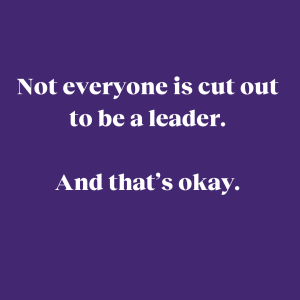In the early days of your startup, good company culture might happen naturally- but as you plan to hire at pace, culture will be something you have to actively curate.
Here’s 5 ways to maintain a small-firm culture as you scale.
Define and embody your values
When it comes to your company values, you need to practice what you preach.
In your early days when you are making a lot of the hiring decisions yourself, you might have an idea of what’s important to you.
And this might work when you have a team of 10 who all get on, but as you scale, this needs to be translated into a clearly defined set of brand values that are lived by your team.
Establishing what these values are will not only help you to roll out effective marketing and build relationships with your customers, but it’ll also define your hiring strategy and align your team to your company mission.
Make considered hires
A startup is only as strong as its team, and a bad hire can send shockwaves across your business.
So instead of focusing on bringing in the best talent, look to hire the right talent for your company.
And involve your team in the process. If there’s poor representation in your hiring team, this will be reflected in your future hires.
When it comes to assessing talent, don’t fall into the trap of making snap decisions off the back of CVs. Your best hires will be people who are aligned with your company values- not just those who have attended a big-name school.
Use scorecards to assess each candidate against a pre-determined list of requirements and consider using technical tests and gamified assessments to add another layer of objectivity to your hiring.
Clear communication
In today’s remote and hybrid world, a lot of people don’t want to return to the office full time.
This is a cause for concern for startups trying to establish good culture with teams that have never met face to face.
Establish what methods of communication work for your team and then put this into action. This might be daily team calls, weekly catchups, regular one-to-ones, or even social calls that are in the diary that don’t centre around work.
And with every new hire, make sure that it is clear who to go to with any questions or support. Don’t drop the ball on onboarding just because you’re no longer sat together in an office.
You may not be able to keep up with every individual win from your team, but encourage people to shout about what’s going well, and to celebrate as a team.

Appreciate different people work differently
Not everyone’s cut out to be a leader. And that’s okay.
Understanding your team and taking the time to talk through their progression plans will help you to put the right people in the right positions.
Talk to your team about long-term and short-term plans, and the steps they need to take to get there. Not only is this great for company culture, but it also helps boost retention and employee motivation.
The natural career progression route puts senior team members into leadership or team lead roles. But sometimes this does more harm than good.
The skills involved in software development or design etc. are very different than the skills needed for leadership and people roles.
Not everyone wants to be a leader, and not everyone makes a good leader.
People stay in their jobs because of people. Culture is such a huge part of any role, that making one bad leadership appointment could cost you more than you bargained for.
Remember your why
Every company has a why at its core.
If you’ve done your hiring right, this should be a mission shared by your team.
Scaling your company will never come without its challenges. But keeping your why at the heart of what you do will help keep you on the right track.
And if you want help with your hiring, we’re happy to help.
This blog was guest authored by Róisín Phelan, content writer at ISL Talent. ISL are an award-winning UK recruitment company who partner with startups and scaleups in their growth journey | Strong teams, built better.

